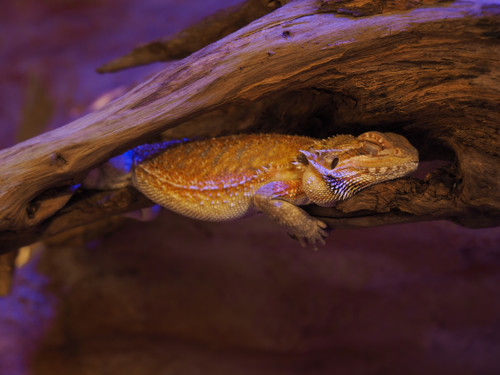Winter Care for your Bearded Dragon
Posted by BioSupplies on 12th Jul 2024
Bearded dragons, native to the warm deserts of Australia, are popular pets known for their friendly and curious nature. However, as temperatures drop during the winter months, it’s crucial to adjust their care to ensure they stay healthy and comfortable. Here’s a comprehensive guide on winter care for your bearded dragon.
1. Adjust Heating and Lighting
Temperature Regulation:
- Basking Spot: Ensure the basking spot remains between 35-40°c. Use a reliable basking light and check temperatures regularly.
- Cool Side: Maintain the cool side of the enclosure around 24-29°c.
- Nighttime: Night temperatures can drop to 18-24c, but not lower. Consider a ceramic heat emitter if your home gets colder.
Lighting:
- UVB Lighting: UVB exposure is essential for your bearded dragon’s health. Ensure the UVB light is on for 10-12 hours a day. Replace UVB bulbs every four to six months, as their effectiveness diminishes over time.
2. Monitor Humidity Levels
Humidity:
- Bearded dragons thrive in a low-humidity environment. Keep humidity levels between 20-40%. High humidity can lead to respiratory infections.
- Use a hygrometer to monitor humidity and adjust using a dehumidifier or increased ventilation if necessary.
3. Provide Proper Nutrition
Diet:
- Offer a balanced diet of insects (such as crickets and black soldier fly larvae) and fresh vegetables.
- Dust insects with calcium and vitamin D3 supplements to ensure they get essential nutrients.
- Reduce feeding frequency if your bearded dragon shows signs of reduced activity, but don’t stop feeding altogether unless they are in deep brumation
Hydration:
- Ensure fresh water is available at all times. Mist vegetables lightly to provide additional hydration.
4. Adjust Activity and Handling
Brumation:
- Some bearded dragons may enter a state similar to hibernation called brumation during winter. They may eat less and sleep more or stop altogether for a period of time.
- If your bearded dragon is brumating, stop handling and allow them to rest. Ensure they have a comfortable and quiet place in their enclosure.
5. Maintain Enclosure Cleanliness
Cleaning:
- Regularly clean the enclosure to prevent the buildup of bacteria and parasites.
- Spot clean daily, and perform a thorough cleaning once a month. Remove waste, uneaten food, and shed skin promptly.
6. Monitor Health Closely
Health Checks:
- Watch for signs of illness, such as lethargy, loss of appetite, weight loss, or respiratory issues.
- Regularly check for mites, skin infections, and other health issues. If you notice any concerns, consult a reptile veterinarian promptly.
7. Prepare for Emergencies
Emergency Supplies:
- Have a supply of emergency heat sources, such as heat packs or extra bulbs, in case of power outages.
- Keep contact information for a reptile veterinarian handy.
Brumation: Understanding Your Bearded Dragon's Winter Rest
What is Brumation? Brumation is a period of dormancy that bearded dragons may enter during cooler months, similar to hibernation in mammals. It's a natural response to changes in temperature and light and helps them conserve energy.
Signs of Brumation:
- Reduced appetite or refusal to eat
- Increased sleeping or lethargy
- Hiding more frequently
Care During Brumation:
- Environment: Ensure your bearded dragon has a quiet and comfortable spot to rest.
- Hydration: Offer water regularly. Mist their enclosure lightly to maintain proper humidity levels.
- Minimal Disturbance: Limit handling and avoid unnecessary disturbances.
- Monitoring: Keep an eye on their weight and overall health. Consult a vet if you notice any concerning changes.
By making these adjustments to their care, you can ensure your bearded dragon remains healthy and happy throughout the winter months. With proper heating, lighting, nutrition, and attention, your bearded dragon will thrive, regardless of the season.
For more tips on caring for your bearded dragon and other reptiles, visit our blog at BioSupplies and stay connected with us on Facebook for the latest updates and advice!

